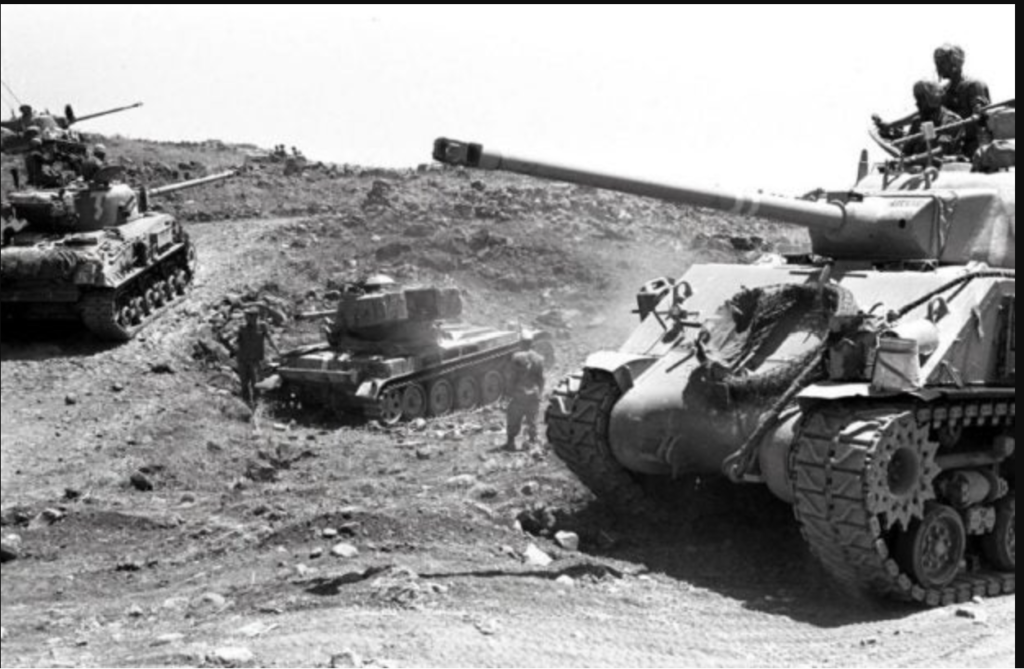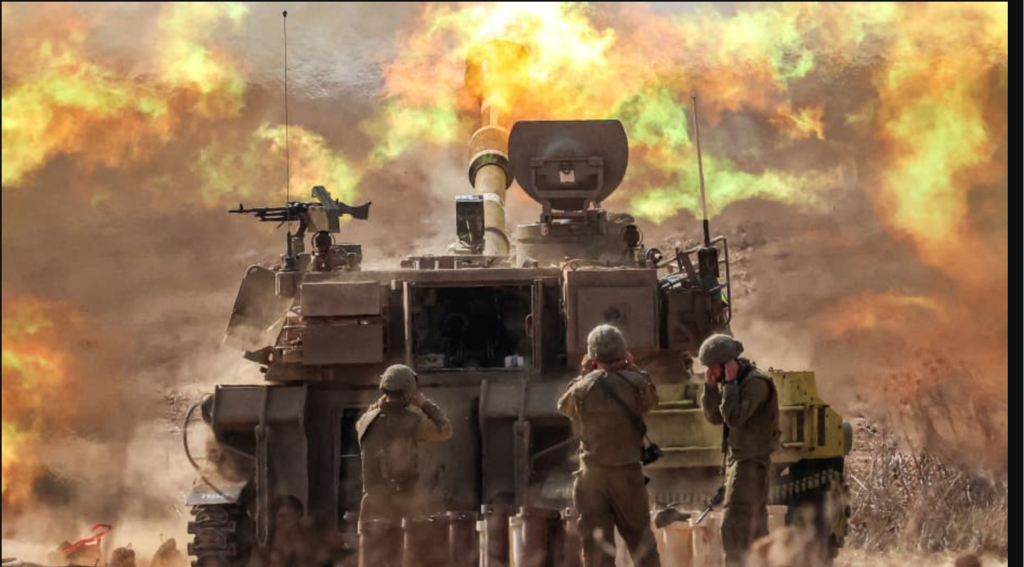The Arab-Israeli conflict has been a complex and enduring issue in the Middle East, marked by a series of wars, disputes, and negotiations. The Fifth Arab-Israeli War, also known as the 2021 Israel-Gaza conflict, brought renewed attention to this region, highlighting the ongoing challenges and the need for diplomatic solutions. In this article, we will examine the key lessons to be drawn from this recent conflict.
The Unresolved Nature of the Arab-Israeli Conflict
The Fifth Arab-Israeli War underscored the fact that the core issues of the conflict remain unresolved. These include the status of Jerusalem, the rights and status of Palestinian refugees, borders, and the recognition of Israel. These fundamental disputes have continued to fuel tensions and were a major factor in the escalation of the conflict.
The Role of External Actors

Arab-Israeli Conflict
The involvement of external actors, particularly regional and international powers, plays a significant role in shaping the dynamics of the conflict. During the recent war, countries like Egypt, Qatar, the United States, and others played crucial roles in mediating ceasefires and influencing the actions of the involved parties.
Also read :India’s Support For Israel: Unveiling A Complex Partnership
The Fragile Nature of Ceasefires
The conflict highlighted the fragility of ceasefires and the ease with which they can be disrupted. Despite multiple ceasefires being declared, the fighting resumed, demonstrating the challenges of achieving a lasting peace in the region.
The Humanitarian Toll

Arab-Israeli Conflict
The humanitarian impact of the conflict was severe. Civilians on both sides suffered, and there was significant damage to infrastructure and essential services. The Fifth Arab-Israeli War served as a stark reminder of the urgent need to address the humanitarian consequences of the conflict.
The Role of Media and Information
The conflict brought to the forefront the role of media and information in shaping public perceptions and opinions. The spread of information, sometimes accompanied by misinformation and propaganda, can influence international reactions and public sentiment.
The Need for Diplomacy and Negotiation

Arab-Israeli Conflict
The recent conflict emphasized the importance of diplomacy and negotiation as the most viable path to achieving a lasting and just resolution. Diplomatic channels, including those led by international bodies like the United Nations, must be utilized to address the core issues and build a framework for peace.
The Voices of the People
The Fifth Arab-Israeli War saw demonstrations and protests in various parts of the world, with people expressing solidarity with the affected populations and calling for a peaceful solution. Public opinion can have a significant influence on the actions of governments and international bodies.
The Imperative of Long-Term Solutions

Arab-Israeli Conflict
Short-term ceasefires and limited agreements are not sufficient to address the deeply entrenched issues of the Arab-Israeli conflict. A comprehensive and long-term approach is necessary to address the root causes and lay the groundwork for a sustainable peace.
Regional Stability and Cooperation
The Fifth Arab-Israeli War also highlighted the interconnectivity of regional stability and cooperation. The conflict’s impact reverberated across the Middle East, with neighboring countries feeling the consequences of the violence. This emphasizes the importance of fostering regional stability and cooperation, as the ripple effects of instability in one area can have far-reaching consequences.
Grassroots Initiatives for Peace

Arab-Israeli Conflict
The conflict revealed the resilience of grassroots peace initiatives and dialogue efforts, including those involving individuals, civil society organizations, and peace activists on both sides. These initiatives can serve as essential channels for building trust and understanding between communities affected by the conflict.
The Evolving Nature of Conflict
The conflict also highlighted how the nature of conflicts has evolved in the 21st century. Non-state actors, including militant groups, play increasingly significant roles in shaping the dynamics of conflicts, making it essential for international efforts to adapt to these new challenges.
The Importance of Humanitarian Aid

The Fifth Arab-Israeli War
The Fifth Arab-Israeli War underscored the importance of humanitarian aid and support for the affected populations. The international community must prioritize providing assistance to those in need and facilitating the delivery of humanitarian aid, particularly in conflict zones.
Learning from History
The history of the Arab-Israeli conflict is a valuable resource for understanding the complexities and challenges it presents. Past negotiations, agreements, and peace attempts can provide valuable insights into how to approach the current situation.
The Global Community’s Role

The Fifth Arab-Israeli War
The international community has a vital role to play in addressing the Arab-Israeli conflict. The recent war brought renewed attention to the situation and called on nations worldwide to engage diplomatically, provide support for peace initiatives, and work together to find a sustainable solution.
The Imperative of Compromise
Ultimately, the Fifth Arab-Israeli War reiterates the importance of compromise and a willingness to make difficult concessions for the sake of peace. The entrenched nature of the conflict demands creative and bold solutions that acknowledge the rights and aspirations of all parties involved.
Conclusion
The Fifth Arab-Israeli War reminds us of the ongoing challenges posed by this protracted conflict and the pressing need for comprehensive, long-term solutions. The lessons learned from this recent episode provide an opportunity to reassess approaches to the conflict, focus on diplomacy and negotiation, and reaffirm the commitment to building a future where peace and stability prevail in the Middle East. It is a call to action for the global community to come together in the pursuit of a just and lasting resolution to the Arab-Israeli conflict.
Also read : Navigating Complex Waters: Israel’s Relationship With The Middle East
The Fifth Arab-Israeli War




































